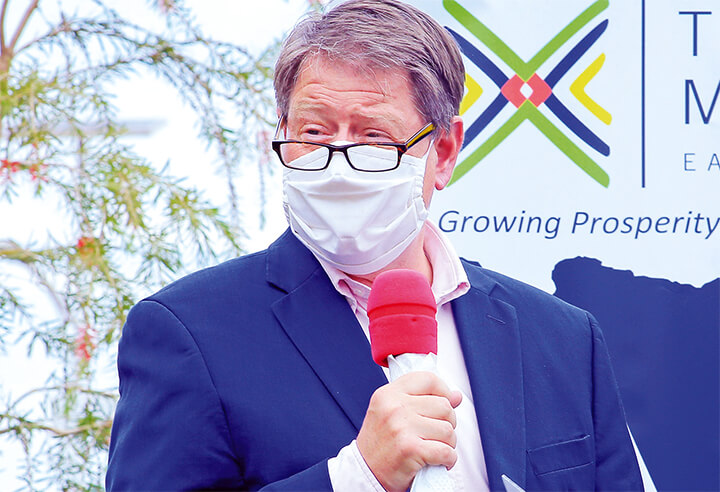
Our Projects are
Transforming African Trade
Quick Contacts
2nd Floor, Fidelity Insurance Centre Waiyaki Way, Westlands

The outbreak of the COVID-19 pandemic in 2020 coupled with conflicts in some parts of the Democratic Republic of Congo (DRC) will delay the completion of the one-stop border post (OSBP) at Goli and Mahagi.
DRC and TradeMark Africa (TMA) signed the contract to begin construction of the OSBP at Mahagi in Ituri Province, on the border with Uganda on April 16, 2020.
“With Goli-Mahagi, we have had a few challenges on the DRC side. The Ugandan side was complete in a period of about six months. The DRC side is a bit more complex because of some unrest on the DRC side which interrupted civil works and there have been some cost overruns.
“We may be able to complete probably in the next nine months,” Frank Matsaert, the chief executive officer of TMA, said.
Matsaert was addressing the media on some of the ongoing projects being implemented by TMA to smoothen trade flow across borders in Kampala on Thursday.
Matsaert added: “The balance sheets of construction companies were also weak (due to the effects of the pandemic) and what we found is that this has been a challenge across the region.”
The Goli-Mahagi border is one of DRC’s busiest border crossings, located at the axis linking the popular centres of Arua (Uganda), Bunia (DRC), Kisangani (DRC) and the port of Mombasa (Kenya) along the Northern Corridor.
The planned OSBP border between Uganda and DRC is aimed at modernising the border infrastructure at Goli-Mahagi and to improve the handling of processes and goods and people.
TMA supports trade policy frameworks to strengthen the competitiveness of the private sector, and aid other productive sectors to trade domestically and internationally.
The Goli-Mahagi project is valued at about $2.5m (sh9b). TMA, with funding from the United Kingdom, Commonwealth and Development Office, is financing the construction of the Goli OSBP and the integrated border management system.
The OSBP implementation period was set between 2018 and 2022 according to TMA.
Read original article
Disclaimer: The views and opinions expressed in this article are those of the authors and do not necessarily reflect the official policy or position of TradeMark Africa.